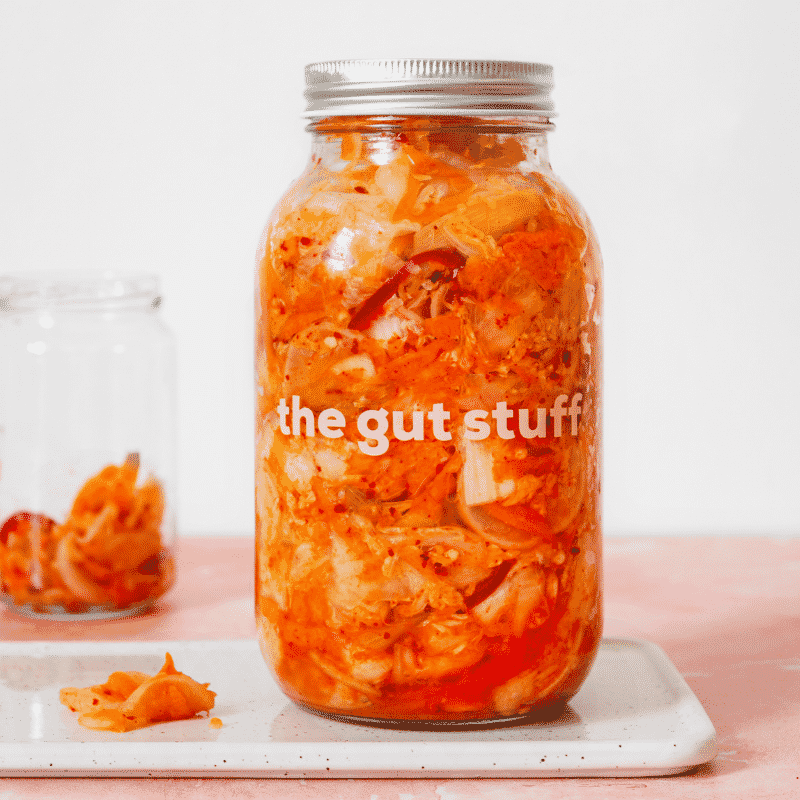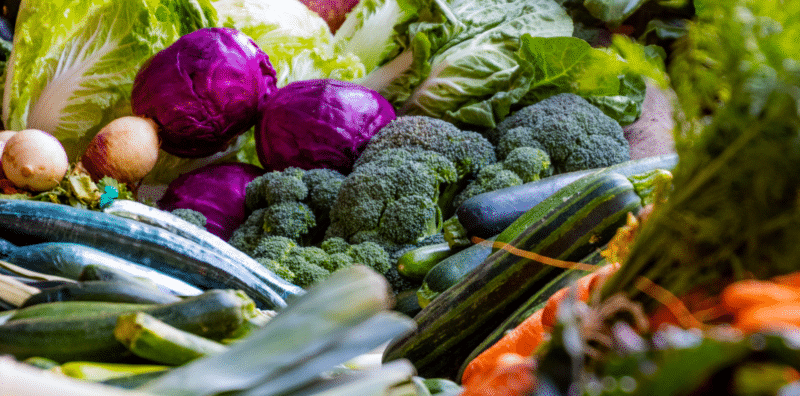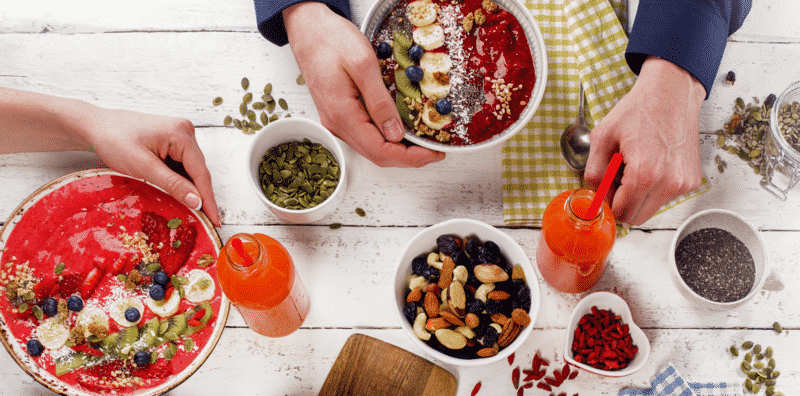making gut habits
We explain the science behind how habits are made and share our top gut loving ones.
September feels like a new year to us, maybe it’s that back to school, back to work vibe kicking about. How many times have you said you’re going to make a new habit only for it to last a week?! Both hands up for us!
We shout a lot about our tips to empower gut health in everyone but how do you put those tips into practice and make them a habit? We’re here to explain the science and give you a step to step guide on how you can create a new habit to support your gut.
Before we delve into the how, let’s explain the what. A habit is a behaviour that you repeat regularly – it could be an action (like planning your meals or writing a diary), routine (like shopping on a Sunday) or lifestyle (like making sure you’re active).
Eventually these behaviour patterns become unconscious and part of your day to day life – this is great news if the habit is a positive one and even better if it’s going to support your gut health.
Why?
When given the choice, us humans often pick the easiest, quickest or most enjoyable option (we know that’s the case for us!). Now, there’s nothing wrong with this but when it comes to choosing an action that supports your gut, creating simple habits that become part of your routine may be better than what is the perceived easiest option.
For example, if you always find yourself not knowing what to cook and reaching for the easiest and quickest option (like a ready meal or takeaway), planning your meals ahead and making a weekly habit of it may help you eat a more gut-friendly diet.
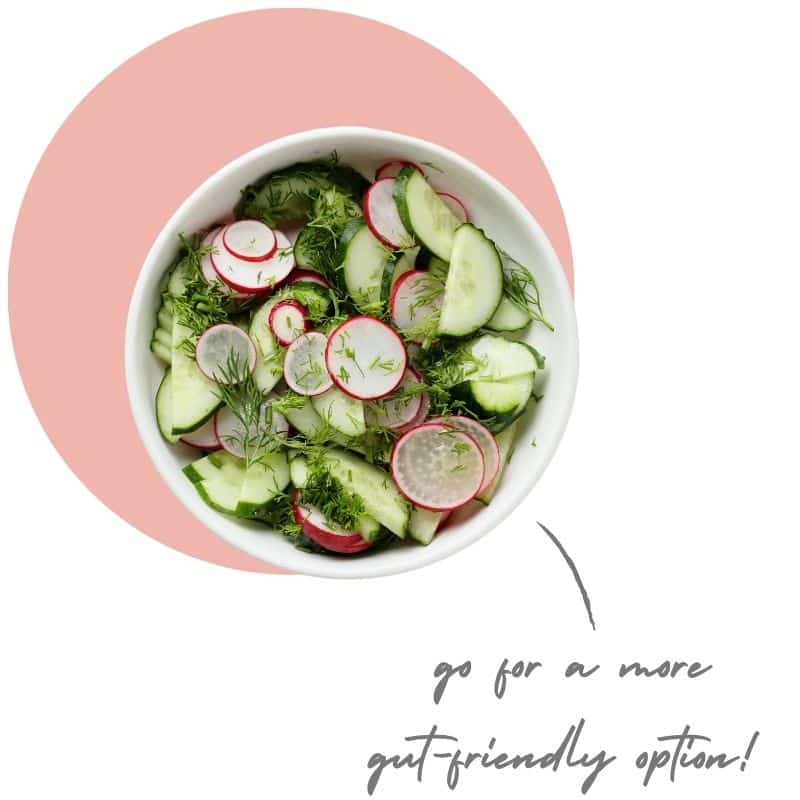
How to form a habit?
The formation of a habit isn’t as complex as you might think, but there are steps (and a little effort) required up front to make that habit stick. For an action to become a habit, it needs to be repeated and is often triggered by a cue (e.g. washing your hands after the loo).
What to do
- Decide on what goal you want to choose (we’ve got some ideas for you below).
- Choose a simple action that you will do at a set time (e.g. making breakfast the night before).
- Plan when and where you will do this (e.g. 7pm when cooking dinner in the kitchen) and your cue (e.g. planner on the fridge – check out our gut planning kit.
- Do the action (e.g. making breakfast).
- Keep doing it at the same time. You might find it useful to keep track of it by writing it down in a diary, you may find our gut diary helpful here.
- Once it becomes second nature = habit formed.
How long does it take?
You may have heard that it takes 21 days to form a habit – we love facts and figures but the truth is, it depends on the habit you’re trying to implement, who you are and all the other circumstances.
One piece of research looked at how long it took adults to form a healthy habit from dietary changes to physical activity – on average it took 66 days but there was quite a range, from 18 – 254 days! So keep that in mind.
It’s also important to remember that you won’t derail your efforts by not doing it every day (a common misconception).
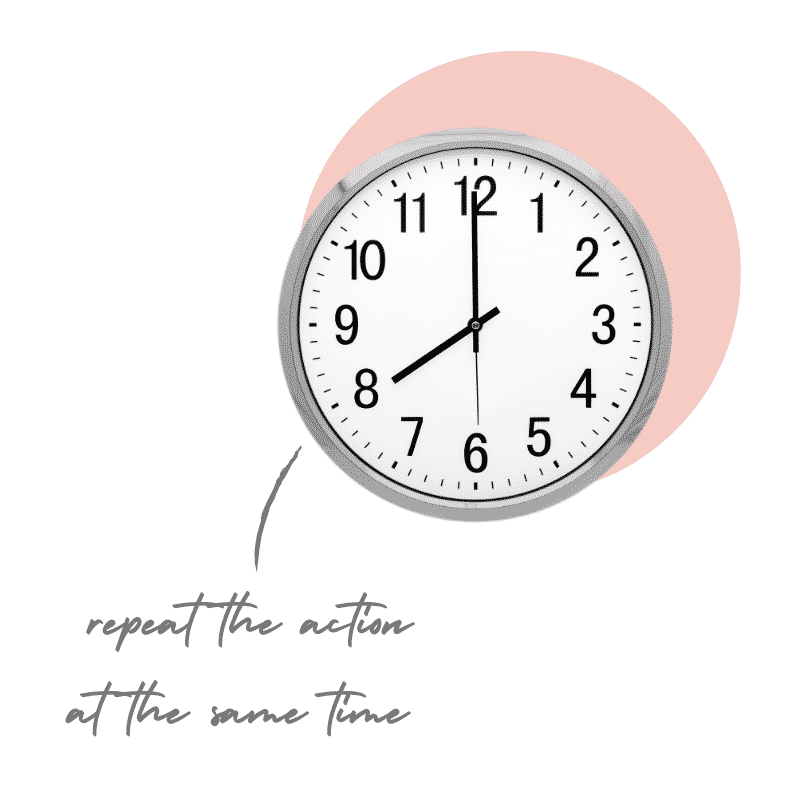
Some gut habits to pick from:
One more plant – Plant-based variety is so important when it comes to gut health. Assess each meal you make and ask yourself, is there one more plant you could add? It could be herbs, a sprinkle of seeds or a different kind of vegetable. The cue is looking at your plate or tallying up your plant count in a diary.
30 plants a week – Use our handy variety checklist magnet (part of our gut planning kit) to keep track of variety in your shopping list and help you reach 30 different plants a week.
Plan your meals in advance – Plan the meals you will make from home. Choose the same day each week to sit down and do this and stick a reminder on your fridge (or use our meal planner magnet (part of our gut planning kit).
Use a diary – If you’re experiencing gut symptoms, try a notebook or diary to record what you’re eating and the symptoms you’re experiencing (our new and updated gut diary is now available in our shop). This will help you tune in and spot patterns that might be helpful.
Make your own fermented food – Start slow, try once a month, set a date and time that you will set aside to make your ferment or even a weekly sourdough bake. Cues to help you: put your ferment schedule somewhere visible, keep track of your current ferment in the fridge and have it in sight in your fridge too. We’ve got a whole load of new recipes that use ferments and our magnet set includes a ferment checklist to help you along the way too.
Fibre-fuelled breakfast – Make your breakfast the night before so it’s ready to grab and go. Check out the recipes section on our website. Put your name down on our wait list to be the amongst the first to get your hands on our all in one fermenting kit, which will make overnight oats even easier.
Sitting down to eat (and not picking while making food) – Chewing properly and being ready to digest is underrated, this is one of the easiest things you can do and its free! Cues: if you’re standing don’t eat.
And our final tips…start small, be consistent, get others involved and use tools to help you along the way! Good luck!
